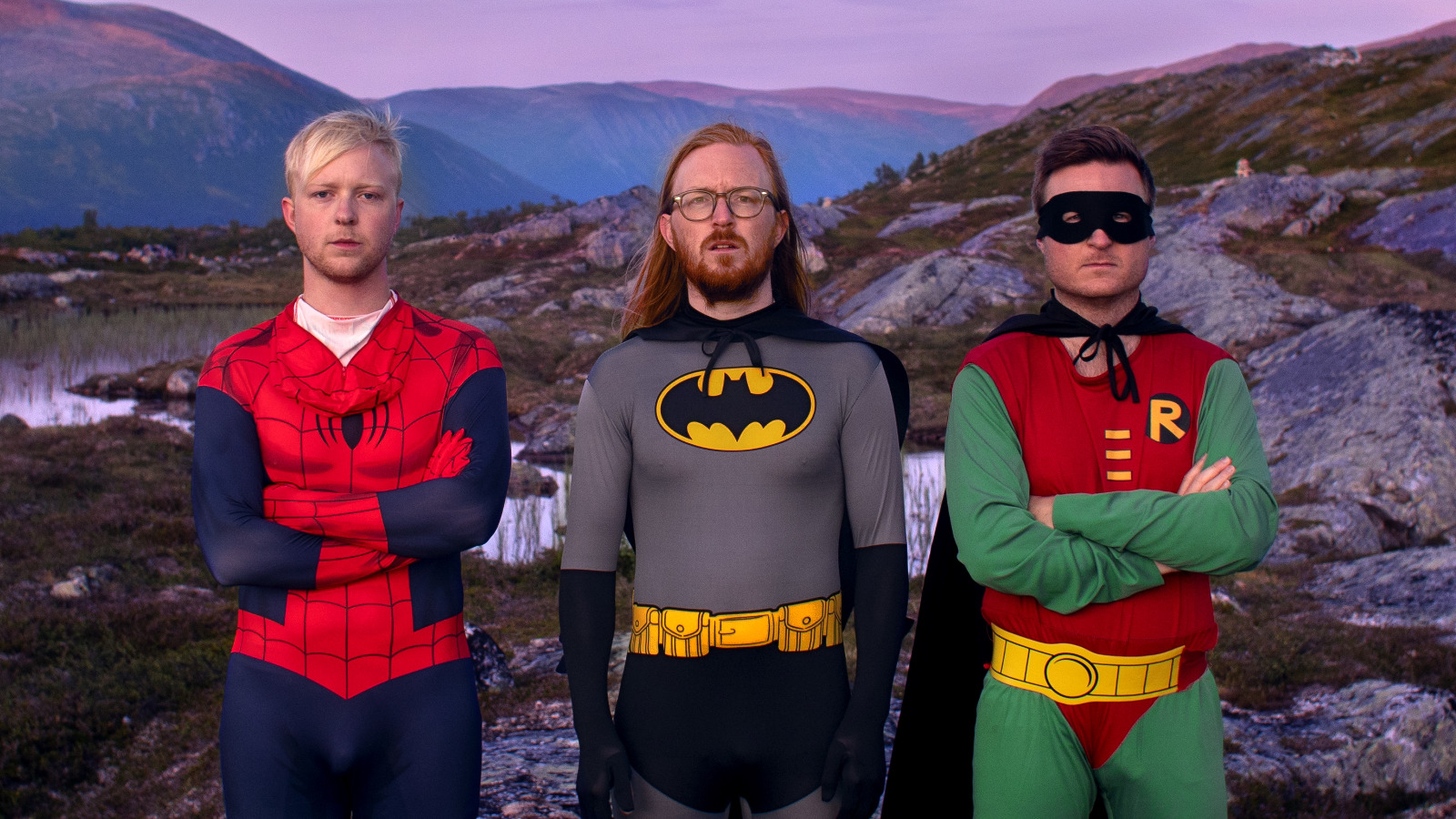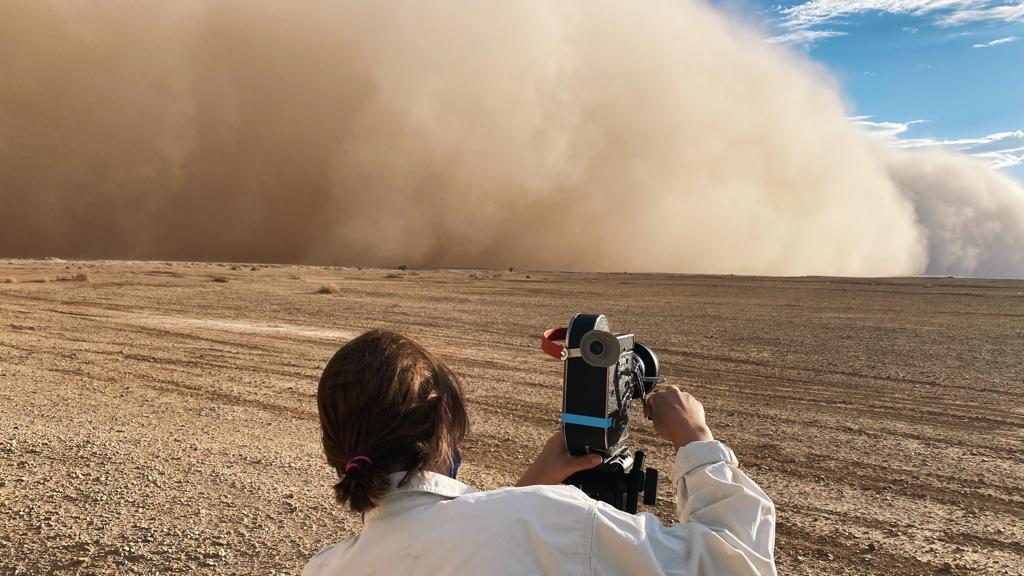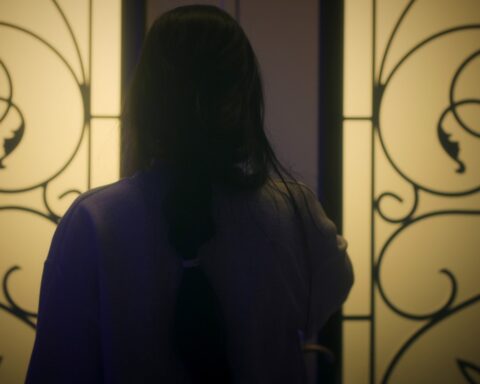Borders are fluid in the age of co-production. Perhaps this reality is most evident at Hot Docs in the annual programme The Changing Face of Europe. Created in partnership with European Film Promotion, The Changing Face of Europe spotlights stories from the continent in a time of transition. Moreover, the films in this selection reflect an increasingly globalized world year by year. Look at the programming notes and one sees more hyphens and slashes among the credits. On one hand, this programme takes the pulse of global documentary filmmaking. On the other, The Changing Face of Europe reflects how stories are increasingly transnational: while these productions are European, they’re ultimately a snapshot of the world.
One sees documentary straddling two worlds, for example, in the programme selection The Hearing. Directed by Lisa Gerig, the Swiss production features a handful of Swiss characters, but the film’s central subjects hail from Nigeria, India, and Cameroon. They’re Swiss hopefuls, asylum seekers fleeing violence back home. Gerig’s film smartly interrogates Switzerland’s role amid the global migration crisis as she invites asylum seekers to recreate the interrogations that formed their application process. The twist is that the officiants are the real interrogators. The Hearing forces them to sit face to face with the injustices of the system.
“The film is intended to provide a precise and critical view of this bureaucratic procedure, which otherwise takes place in secret,” Gerig tells POV in an interview. “And beyond that, more fundamental questions should be made possible: Are hearings, as the film shows them, reasonable and the ideal instrument for granting asylum? Can the current concept of refugee still respond adequately to the diversity of asylum motives today?”
Of Here and Elsewhere
Similarly, the right to create a home in a foreign land receives a fascinating query in The Changing Face of Europe selection The Visitors. This Czech/Norwegian/Swedish co-production directed by Veronika Lisková whisks audiences to the small Arctic town of Longyearbyen, Norway. There, Czech researcher Zdenka Sokolícková studies the migration habits of “long term vacationers.” These travellers, like herself, make use of the town’s policy that allows anyone to live in Longyearbyen so long as they have a job and a home. However, this makes the long-term residents, mostly native Norwegians who settled there under similar circumstances, angered by a revolving door society.
As Sokolícková interviews long-term residents, studies climate changes and considers the prospects for the family life she hopes to establish there, she observes a hostile environment. Although Longyearbyen displays evidence that the world is changing rapidly, its residents seem frozen in time, clinging to a way of life that no longer appears sustainable.
These stories echo throughout The Visitors’ fellow Changing Face of Europe selection All You See. Directed by Niki Padidar, this production from the Netherlands considers the nation’s openness to new citizens. The film invites migrants to share their stories in interviews and dramatic exchanges. Their tales evoke encounters as “the other” and convey the frequency with which they’re tasked to identify their nation of origin in a land they’ve called home for years. As with The Hearing and The Visitors, All You See confronts inequities both social and systemic regarding Europe’s acceptance of new citizens who simply seek the same rights and dignities of people born on the continent.
Confronting Broken Systems
Stories of a broken system with global impact appear in the programme’s hot-button doc Tax Me If You Can. Directed by Yannick Kergoat, the French production should please fans of docs like The Corporation with its study of the crooked nature of big business. Researchers and whistleblowers unpack the many ways in which the rich stay rich by avoiding taxes. The film outlines the complicated web of capitalism in which the wealthiest avoid paying their fair share. And, like Trump, gloat about it on TV. This film will make you very, very angry.
So too will Vicky, Ireland’s entry in The Changing Face of Europe. The film directed by Sasha King tells the tragic tale of Vicky Phelan, who was among a class of women whose pap smear tests were out-sourced to the USA’s faulty system. Thanks to Ireland shipping off some tests to save some money, Phelan learned that she had cancer when it was too late. The film follows her fight for justice and her bravery as she becomes a face for women’s health rights. Although her plight is localised in the Irish courts, it reflects the global ripple effects of for-profit health systems as citizens halfway around the world pay the price for a quick buck.
Films on a Personal Level
Other stories in the programme take a more personal approach. For example, A Happy Man offers an intimate snapshot of transgender rights across European borders. The Slovak/Czech production by Soňa G. Lutherová follows married couple Marvin and Ivan as the former begins his transition. As the Czech-born Marvin and Slovak Ivan navigate the transition from their home in Sweden, A Happy Man explores the differing attitudes to trans rights across borders. Lutherová notes that the situation is especially dire in Slovakia due to changes in the political winds, while Slovakia and Czechia both currently force sterilization as part of the transition process.
“Conservative streams of the political spectrum are feeding on this topic. They are exploiting it to gain cheap votes,” reflects Lutherová. “What I’m hoping for is to shift the discussion about transgender people, as I think that we should depoliticize the way we talk about this subject and really focus on individual people and their struggles.” “In Slovakia, the situation is probably the worst between these three countries. Conservative streams of the political spectrum are feeding on this topic. They are exploiting it to gain cheap votes,” reflects Lutherová. “What I’m hoping for is to shift the discussion about transgender people, as I think that we should depoliticize the way we talk about this subject and really focus on individual people and their struggles.”
Family Tales
Lutherová’s sentiment echoes throughout fellow Changing Face of Europe doc The Homes We Carry. This German production directed by Brenda Akele Jorde zeroes in on one family amid a global struggle. The story follows Eulidio and Sarah, a father and daughter who maintain family ties with half a world between them. Their story is part of the larger history of Madgermanes— Mozambicans like Eulidio, who came to East Germany and worked as labourers until the fall of the Berlin Wall. The Homes We Carry follows Sarah to Mozambique as she connects with the father she barely knew while growing up, and introduces her own daughter to her father, who also lives in Mozambique.
The film offers a snapshot of the challenges faced by families whose togetherness is thwarted by circumstances of labour and migration. The film also reflects concerns raised in docs like The Visitors about the disposability of temporary labourers or The Hearing’s interrogation of the power dynamics entailed within the decision to grant life and liberty. The Homes We Carry deftly connects Sarah and Eulidio’s plight, and that of Sarah and her own child, among the larger collective of Madgermanes as a new generation feels the impact of this injustice.
One Person’s Story Is Your Story
A Millennial tale of labour woes, on the other hand, comes in the character-driven Roberta. Lithuanian director Elena Kairyte’s film follows a young woman as she experiences a revolving door of jobs and hopes to secure work abroad, although the COVID-19 pandemic changes her plans. As Kairyte observes Roberta’s struggles, the film evolves into a larger study of mental health among youth during difficult times.
“I can relate to Roberta on many levels. Roberta’s sense of instability in the film mirrors the mood of many people today, particularly in Europe where there is ongoing war in Ukraine,” Kairyte tells POV in an interview. “In this context, the future feels uncertain and unpredictable. Also, like her, I am going through a process of self-discovery and trying to find my place in society.” As with A Happy Man or The Homes We Carry, Roberta reflects universal tales through individual stories. Really, though, all of the stories in The Changing Face of Europe reflect the collective. That’s why the programme emphasizes transformation.
Explore the films in The Changing Face of Europe here.
Get more coverage from this year’s festival here.
POV is a media partner with The Changing Face of Europe.












